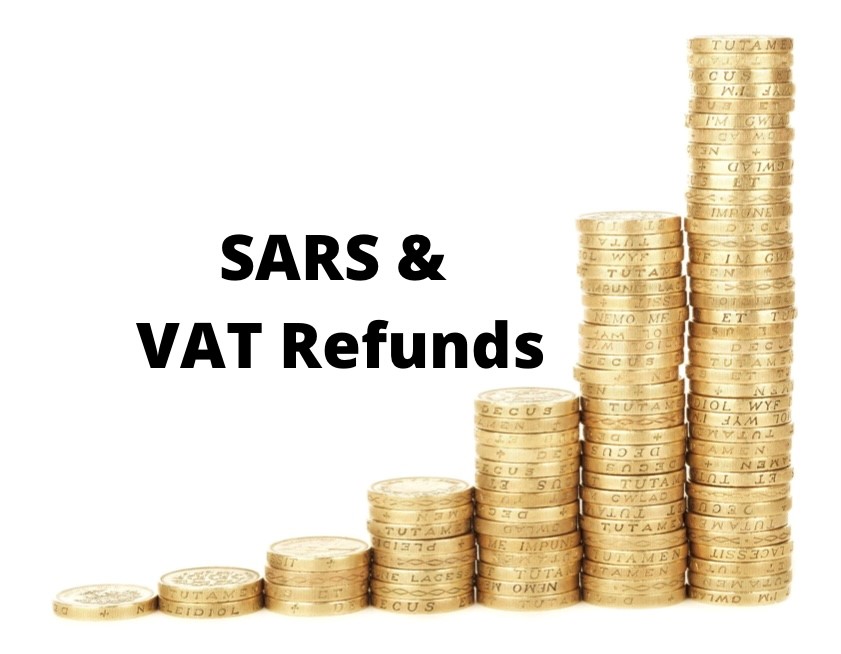
VAT Refunds – Put a Stopper In It!
With South Africa again easing into relaxed lockdown regulations during the first quarter of 2021, and some entities moving into the space of generating increased revenue, it is pertinent for these entities to ensure they are VAT compliant. As any person who carries on a business may register for VAT, it is, however, mandatory for a person to register for VAT if the taxable supplies made or to be made are in excess of R1 million in any consecutive twelve-month period.
VAT is an advanced sales tax where the person is taxed on final consumption. It is thus clear that everybody pays VAT and, where appropriate, registered vendors are entitled to receive back at the end of a month in terms of refunds. The problem comes in where SARS cannot distinguish between money in trust and refunds to be paid back. The purpose of the VAT system is for SARS to trace who must pay and when. SARS’ withholding of VAT refunds, whether deliberate or not, lead to businesses suffering due to bad cashflow.
It can be said that SARS has improved somewhat in paying out refunds due to taxpayers, which means that the practice of slow payments of VAT refunds may be a structural problem. In this regard, some may argue that SARS is designed to collect money and not to give back. However, in the 2020 Office of the Tax Ombudsman’s (OTO) report it was showcased that SARS is withholding VAT refunds without good cause.
HISTORY REPEATING ITSELF
The previous administration of SARS held VAT refunds to the detriment of the economy – it was SARS’ interpretation that when there is a VAT audit, there is no timeframes to adhere to, – meaning the audit could carry on indefinity and all refunds could be withheld. The taxpayer could not demand SARS to release a refund and finalise an audit – it just had to run its own course.
SARS’ system has an automatic stopper to withhold refunds – it is this automatic stopper that prohibits taxpayers to bring a review application. Furthermore, SARS was of the view that you cannot release partial refunds, it must be full refund. A matter that truly showcases SARS’ misuse of the system is the case of Rappa Resources (Pty) Ltd v CSARS (20/18875).
RAPPA V CSARS
In this matter, the Rappa pursued an order to instruct SARS to pay VAT refunds in full or, in the alternative, 50% thereof pending a review of SARS’ decision to withhold said refunds. A second part of the order sought was for SARS to complete its audit within 15 days and to cease withholding further refunds where security can be provided.
In contending Rappa’s submission that its decision to withhold the refunds is without lawful or factual basis, SARS was of the scathing view that no decision has been made to withhold the refunds, and that therefore there was no decision that must be reviewed. It was SARS’ submission that the withholding of refunds when an audit was instituted was automatic and not a decision. According to SARS, a decision was only made after an audit was finalised. On this basis the learned judge noted that “this is patently inconsistent with both the TAA and with SARS’s practice, including in other audits on Rappa.”
From a taxpayer’s perspective the question begs that how is it possible not to refund if there is no decision made by SARS to withhold the refund? The learned judge further commented that the decision to withhold refunds is patently different to a decision to audit, because it has a direct, external legal effect and the taxpayer’s liquidity is immediately affected. A VAT vendor is entitled, in good faith, to a refund on submission on a self-assessment. It was therefore the court’s judgement that SARS cannot continue to withhold refunds where those refunds are not under audit and SARS was ordered to make payment of refunds to extent that security can be provided.
THE MODERNISATION OF VAT REFUNDS
One of the SARS problems is that SARS’ process has limited powers – certain refunds automatically stop due to risk being identified albeit the goods of the entity of monetary amounts – then you need human interaction to release – in simple terms, VAT stoppers are risk engines. Currently it is the OTO’s view that the VAT refund automatic stopper is unreasonable, and that SARS has to pull the plug on this practice. It is thus clear that without the stopper an active decision needs to be made by a senior official.
The OTO reports that SARS has been ignoring these recommended steps and the ongoing legal costs are astronomical. This situation calls for cleaner legislation which tax administrators need to correctly interpret and apply.
Pursuant to the RAPPA judgement, SARS cannot hold an audit for an indefinite term based on suspicions it has with certain taxpayers There should be no automatic stopper of taxpayers’ VAT refunds based on a decision by SARS not to release same. There is no obligation on SARS to do a full refund of all amounts claimed as a partial refund may be allowed.
Where a taxpayer is aggrieved by a SARS audit procedure and SARS is not releasing VAT refunds, they can always follow the legal route. If you experience delays in your VAT refunds from SARS, you are welcome to connect with, Ruan Botha, of Tax Africa at 072 826 3988 to explore your options.